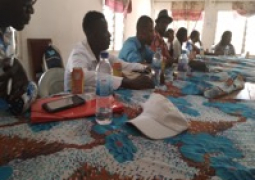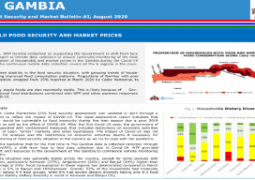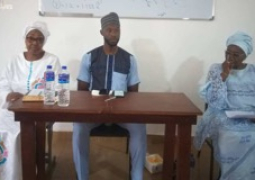
Ansumana Ceesay was speaking during the weekend at Basse at the opening of an interface between youths and local authorities on the involvement of young people in traditional community conflict resolution and management mechanisms.
Held under the theme; “Leaving No One Behind: Inclusive and Meaningful Participation of Youths Is Key in Sustaining Peace and Security”, the interface was organised by NCCE with funding from UN Peace Building Fund (PBF) and the United Nations Population Fund UNFPA.
The interface was aimed at creating a platform for both community leaders and young people to be enlightened and to exchange ideas on the involvement and participation of young people in traditional community conflict resolutions and management mechanisms and sustenance.
The exercise involves six (6) interface sessions in six administrative Regions of Kanifing Municipality and Banjul, Upper River, Central River, Lower River, North Bank and West Coast Regions.
A session will be held in each of the selected regions, targeting about 270 participants, mainly young people, women, opinion leaders, community leaders and local authorities.
SPO Ceesay informed that despite continued efforts by several stakeholders and actors in the promotion and inclusion of youth in decision making, there still remain challenges that prevent youth from actively engaging meaningfully in decision making and peace building initiatives such as Community Conflict Management Mechanisms, hence the intervention by the NCCE and partners.
He noted that creating the right environment and space for youth activism and meaningful participation in conflict prevention, peace building and decision making in general, requires huge commitment and deliberate effort on the part of every element of society especially regional and local authorities.
Ceesay assured his institution’s commitment to continue facilitating interface and dialogues of this nature to build harmony, and promote civic engagement and participation.
“In the context of our recent history characterised by mal-administration and bad governance, it is important for citizens especially youth who form the majority of the population, to be reoriented, sensitised and educated on their civic rights and duties to be able to actively, meaningfully and responsibly take part in decision making, governance, development and peace building processes especially in their localities,” he also said.





